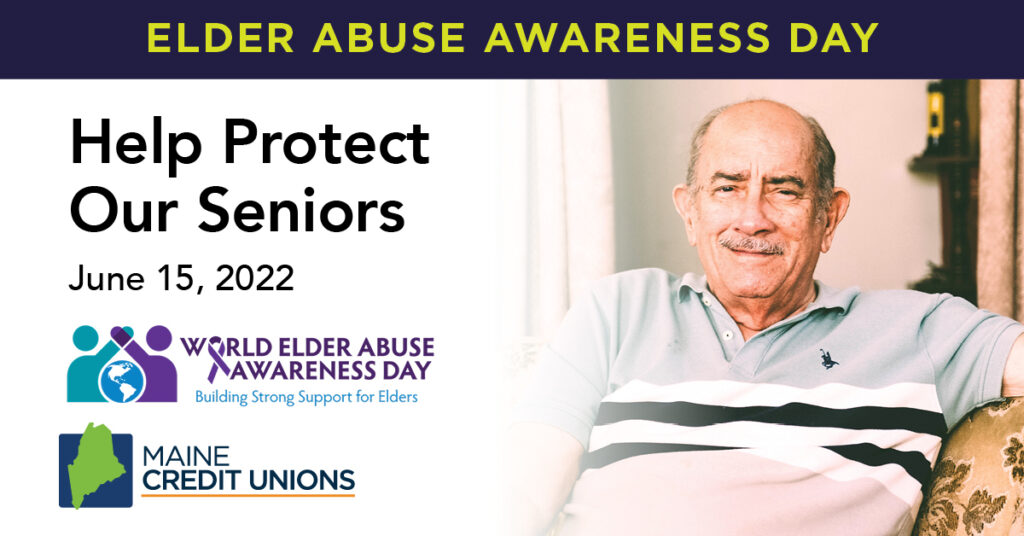
According to the National Council on Aging, one in ten Americans over the age of 60 will experience some form of elder abuse. Financial exploitation of older adults is one form of abuse that is on the rise! Raising awareness about this issue is important, especially in Maine due to our state’s rapidly aging population. June 15 is World Elder Abuse Awareness Day (WEAAD)—marking a perfect opportunity to educate your members about elder financial abuse and how to prevent it.
To help your credit union educate your members on this topic, the League has created a video which can be shared on your social media feeds or on your website. The video also provides tips on what to do if you suspect elder financial abuse and signs to look for.
The League also developed graphics that credit unions can share on Facebook, LinkedIn, and Twitter.
To accompany the graphics, below are sample social media posts your credit union can use:
- Facebook/LinkedIn: Today is World Elder Abuse Awareness Day. According to the National Council on Aging, 1 in 10 Americans over the age of 60 will experience some form of elder abuse. In order to protect your loved ones or yourself, it is critical to learn and recognize the signs of elder financial abuse. Join (credit union name) in raising awareness about this important issue by watching this video: https://youtu.be/DomXXpMz8Wg
- Twitter: Today is #WorldElderAbuseAwarenessDay. To protect Maine seniors’ finances, it’s critical to learn and recognize the signs of elder financial abuse. Join (credit union name) in raising awareness about this important issue by watching this video: https://youtu.be/DomXXpMz8Wg
Lastly, summarized below are some helpful tips you can share with your members to help them recognize the signs of this type of abuse and what they can do if they suspect someone is being financially exploited.
Knowing the Signs of Elder Financial Abuse:
- Money missing from accounts
- Unusual use of credit card activity
- Unpaid bills, collection letters, or a lack of food in the home
- Changes in mood or behavior (depression, anxiety, etc.)
- Missing belongings
Don’t assume that someone else will report a suspicious situation. Here is how to take action:
- Call emergency services (911)—this is especially important if you believe someone is in immediate danger
- Contact protective services
- In Maine, the number to call is 1-800-624-8404 (24-hour, toll free)
- Create an FTC Identity Theft Report
- Notify the older adult’s credit union or financial institution
- Contact the nursing home ombudsman (if the victim is living in a nursing home)
- Maintain regular contact
In the News
Jen Burke, League Public Affairs & Communications Manager, connected with WMTW News Channel 8 on this timely topic on June 9.
